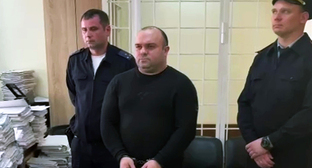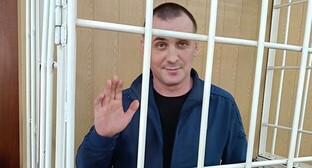19 July 2010, 20:00
Appeal to the parties to the Geneva talks
Participants of the Georgian-Ossetian Civil Forum appeal to the parties to the Geneva talks.
Dear Sirs, Madams,
The war that broke out in August 2008 took away the lives of people, led to significant damage and destroyed many traditional ties. After a few months, political consultations started in Geneva, where representatives of the parties involved started to work on two fronts: on security and on humanitarian issues.
Now, almost two years after the war, the Geneva talks remain the only platform for meetings between the authorities of all parties. With great regret we note that after eleven rounds of consultations no positive results have been reached by any of the working groups. The Incident Prevention and Response Mechanism, created to address the current problems on the ground and so far the only existing discussion platform in the Georgian-Ossetian conflict, is not actually functioning. It is evident that ordinary people and their daily problems are kept hostage to political interests.
We, participants in the Georgian-Ossetian Civil Forum, believe that nothing should block the solution of humanitarian problems.
All parties should try to address the needs of the local population.
In the first place they should solve the problems resulting from the restricted freedom of movement:
- Visits to relatives, religious shrines and cemeteries. War should not lead to the rupture of family ties;
- Access to health care for all inhabitants of the region. If necessary, it should be possible to deliver patients to the nearest hospital;
- Access to fields and pastures for the residents of Ossetian and Georgian villages, which has been restricted after the war. Local residents traditionally engaged in agriculture were left without means of subsistence. The representatives of local communities should be involved to address these issues;
- Water and gas supplies. We believe that the problems of gas and water need to be addressed independently, without making the people hostage to these negotiations;
- Lack of economic and trade ties, which have a very negative impact on the livelihood of the inhabitants of the region. We urge the parties to ensure freedom of economic activity, and all participants in the discussions to promote it;
- Humanitarian access to all of the region. The local population is in dire need of assistance to address humanitarian problems: shelter construction, post-conflict psychological rehabilitation, support to business initiatives. We call upon the authorities of all parties to ensure freedom of access for humanitarian organisations to the region, whereby the organisation itself must be able to determine from which side it is most convenient to enter.
To solve these problems, we urge all sides to establish, promulgate and implement general rules for movement of persons, in the first place for the local population. At the moment, local inhabitants move back and forth without such rules, with their absence leading to multiple abuses and human rights violations by all parties. The detention of people is one of the most acute problems. We urge all parties to refrain from arbitrary detention, the practice of hostage taking and the restriction of the freedom of movement of people. We call for investigation of the cases of missing and illegally detained people, as well as investigation of human rights violations committed during military operations.
We also urge the authorities on all sides to promote a gradual solution of the problems of refugees and internally displaced persons who fled their homes as a result of the conflict since the early 1990s.
All parties shall further the development of contacts at civil society level, support civic initiatives without limiting the freedom of association and assembly.
We urge all participants to the Geneva talks to facilitate the resumption of the Incident Prevention and Response Mechanism without pre-conditions on status or political preconditions, and work towards a prompt agreement on basic mechanisms of cooperation in humanitarian issues.
Leiden, Netherlands, 16 July 2010
Akhsar Tskhurbati, Marina Meshvildishvili,
Alan Gassiev, Maria Plieva,
Varvara Pakhomenko, Megi Bibiluri,
Giorgi Stephnadze, Nana Chkareuli,
Dali Doijashvili, Nodar Sarjveladze,
Zema Tedeeva, Rudolf Gubiev,
Zurab Bendianishvili, Sarmat Parastaev,
Zurab Zubashvili, Cinta Depondt,
Zurab Tavasiev, Sonja van Reede,
Irakli Chikhladze, Tamerlan Tadtaev
Mari Khmiadashvili, Timur Tskhovrebov




